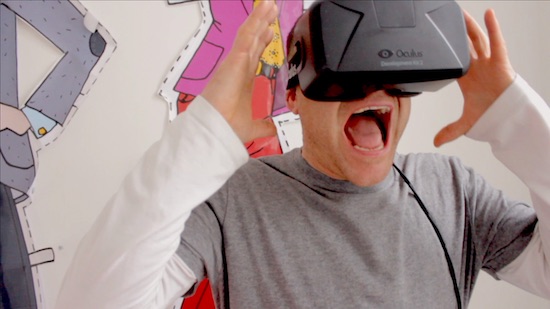In What You Could Have Won, Dr. Henry Sinclair wants to revive his reputation in psychiatry and so he transforms Astrid, an up-and-coming singer, into a drug experiment. So begins a relationship based on regrettable events.
Henry knows that regret’s special talent is to take the error you made and show you how it’s all your fault. Set partly in a psychiatry lab, partly on a Greek nudist camp, the novel is a study in how addiction is alive in all of us. It also suggests that what we see as love is often a matter of us convincing ourselves of it.
Writing about addiction for me is a mash-up of the abject, surreal and sublime which is a good fit for my experience. Then again, I am a butcher’s daughter and I learned a lot of what I know about love in abattoirs.
Before I committed to writing, I was an addiction scientist helping to outline brain pathways that control ‘wanting’ and ‘liking’ and my PhD research into incentive relativity (what we want based on what we’ve had before) coincided with my first attempt at stopping smoking. Though I could be good for long periods, it was as if I couldn’t bear waiting for the inevitable and indeed, wanted it. Was I addicted to regret? Or was craving somehow louder than regret? Like all addicts, my predicted endurance very often came to nowt in practice, and I began to note that in other realms of obsession, wanting someone when you no longer liked them often led to regret. What Burroughs called ‘the algebra of need’ was always a fascination.
When Amy Winehouse showed us her need on stage – pointing at her chest, toes turned in – to mouth I love you at the man whose name was written on the pocket flap across her heart, it was a killer gesture. What kind of woman was I that envied Amy her self-sacrifice, but also wanted to shake her for giving in to love? To find out, I created Astrid who, unlike Amy, might stay alive long enough to re-read her past and choose another way forward.
Shame is a fierce driver of Astrid’s story and I know from my own experience (and the neuroscience of want), that our truest selves come out of our pathetic efforts to maintain what dignity and beauty we can in our abjection. It’s not for nothing that Astrid collects old Hermès scarves that are her trademark on-stage. Fashion is anything but surface and through the writing of this book, themes were revealed to me only once the work was finished. That Henry and Astrid’s relationship degrades over a box-set of The Sopranos is, I imagine, to show how stories can poison us and how trouble entwines with glamour.
Don’t tell me science is not glamorous: I collected my PhD data on a Lickometer and after working on incentive (wanting) I went on to study attention, showing how what you notice affects what you want and I started to play with these ideas in my writing. On the flip-side, I was drawn to cases in science that were poetic; amalgams of the comic and tragic that I would solder into the fiction I was hammering out. For example, Henry wants to be famed for discovering Birdboy – a teenager without eye-movements who moves his head with small jerks like an eyeball to make up for it – but his boss steals the glory Henry feels is rightfully his.
I had jumped to science to avoid jealousy, pity and other sticky emotions, but it turned out to be just another hotbed of bullying, inequality, ritualistic hazing, envy and revenge where individuals who feel put down do not necessarily strike back – rather, they strike forward, feeling gratified in elevating themselves at others’ expense. Science did sadism and narcissism just as well as art.
In the book, as Astrid gains notoriety as a genius songwriter and performer Henry finds it hard to leave her. As John Berger puts it, “the happiness of being envied is glamour.” Henry observes but does not want to be observed and, thwarted by his boss, Henry decides to write his masterpiece crossover, How Cocaine Can Break Your Brain on his boss’s time. With cosmetic surgeon/psychiatrist Gregor Pinkus, he plots setting up his own facility, at the expense of those lured by regret into multiple plastic surgeries. It is in the middle of the novel that Henry foretells his part in the National Facility for the Regulation of Regret.
In 2015, I had already created the National Facility for the Regulation of Regret as a quasi-facility in a gallery, telling stories of characters who checked themselves in when their regret-related behaviours got out of hand. I even made a film where soap star, Joe Duttine (Tim in Coronation Street) played himself as a stalker of Jarvis Cocker. The National Facility for the Regulation of Regret was never real, but whenever I said the words, the relevance of such a place crept up in the listener’s face like a blush. They say at the heart of all good conceptual art is a prank. At the heart of all good pranks is sadism. Was I more Henry than Astrid?
When questioned about how much she relies on history, Hilary Mantel says something about history not being shapely, that it is her job as a novelist to makes it so. It’s how I feel about science.
Science is always going to be hard pressed to put over a kind of feeling of knowing that poetic language evokes, and as writers we dream of Castiglione’s Sprezzatura – a word often used of fashion – that describes “a certain nonchalance, so as to conceal all art and make whatever one does or says appear to be without effort and almost without any thought about it.” In writing fiction, plausibility is hard won but no-one needs to know that.
What You Could Have Won by Rachel Genn is published by &OtherStories



